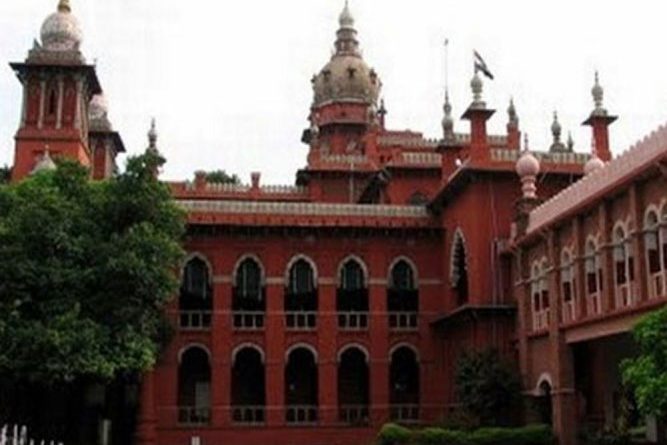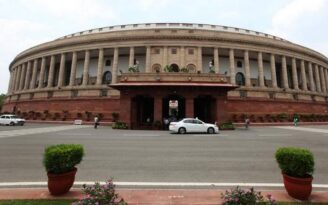State should not Invoke Sec199 (2) CrPC to Throttle Democracy:Madras High Court Quashes Case Against N.Ram & Ors [Read Judgement]
(Judicial Quest News Network)
In a land mark Judgement, the madras High Court on Thursday held that public Servants and Constitutional functionaries cannot be allowed to misuse the law of Criminal defamation by using the State as a tool to initiate defamation proceedings against adversaries.
The Court had quashed multiple defamation complaints filed against a group of editors and journalists such as N Ram, Editor-in-Chief of The Hindu, Sidharth Vardarajan, nakkeeran Gopal etc.
Pertinent observations on the subject of state-sanctioned criminal defamation under Section 199(2) of the Code of Criminal Procedure (CrPC) were made by Justice Abdul Quddhose while allowing a batch of over 25 petitions by various media houses to quash defamation proceedings launched by the ruling regime over press reports dating between 2011-2013.
The Complaints were lodged in 2012 alleging “Criminal defamation against State’ over few reports against J.jayalalitha, the then Chief Minister of Tamil Nadu.
Explaining the exact mean of defamation the Court asserts that “the essence of criminal defamation is that the person charged for the said offence must have the intention to harm the reputation of the person against whom words have been spoken or any article has been published by him.”
The Court has emphasised that “Section 199 of the criminal Procedure Code prescribes the procedure for prosecuting criminal defamation offences. There are six subsections in section 199 and each of them are itself unique in its application. (a) Subsection 1 provides that only an aggrieved person can launch prosecution for criminal defamation. (b) Subsection 2 provides for a special procedure in cases where the imputation is made against the constitutional functionary/public servant in respect of his conduct in the discharge of his public functions. This special procedure provides for filing of a complaint through a public prosecutor before the sessions court.”
The bench of Justice Abdul Quddhose noted that there is a higher threshold for the State to initiate Criminal defamation against citizens, when compared to ordinary cases of defamation inter-se private parties.
“Subsection 3 narrates the facts which are required to be pleaded in a complaint filed for criminal defamation under section 199(2) Cr.P.C. through a public prosecutor. It states that the complaint shall set forth in the facts which constitutes the offence alleged, the nature of such offence and such other particulars as our reasonably sufficient to give notice to the accused of the offence alleged to have been batch committed by him. It is to be noted here that for no other non-cognizable offence in the entire Penal Code, there is a stipulation about the factual requirements that are to be pleaded in a private complaint for Criminal defamation filed under Section 199(2).”
The Judge noted that there appeared to be a pattern of such misuse in Tamil Nadu, pointing out in his order that “Criticism of the policies of the Government is not sedition unless there is a call for public disorder or incitement to violence. The people in power must develop thick skins. They cannot be oversensitive to people who make fun of them. Everybody may not use tempera”
prosecution does not mean persecution
- basic requirements of a Public Prosecutor:
- A Public prosecutor must consider himself/herself as an agent of justice.
- There should not be on the part of the public prosecutor a blind eagerness for, or grasping at a conviction.
- The prosecution of the accused persons has to be conducted with utmost fairness. In undertaking the prosecution, the State is not actuated by any motives of revenge but seeks only to protect the community. There should not therefore be seemly eagerness for, or grasping at a conviction.
- A public prosecutor should not by statement aggravate the case against the accused, or keep back a witness because his/her evidence may weaken the case of the prosecution.
- A public prosecutor should place before the Court whatever evidence is in his/her possession.
- A public prosecutor should discharge his/her duties fairly and fearlessly and with full sense of responsibility that attaches to his/her position.
- Prosecution does not mean persecution.
As a sequitur to the above discussion, the following propositions emerge: a) Being a non-cognizable offence and considering the fact that there are large number of exceptions provided for, the intention of the legislature is to restrict the usage of the criminal defamation law.
b) There is an intelligible differentia between section 199(2) Cr.P.C. and 199(6) Cr.P.C. Only in cases where the State has been defamed and a public servant/constitutional functionary has also been defamed while discharging his public functions, section 199(2) gets 108/152 W.P.No.5129 of 2012 etc., batch attracted and only then, a public prosecutor can launch a prosecution after obtaining prior sanction from the competent authority under section 199(4) Cr.P.C. In all other cases where the ingredients of defamation has been made out, it will fall only under section 199(6) Cr.P.C. and can be filed only before the Magistrate.
c) In cases where the public servant/Constitutional functionary has been defamed while discharging his public functions but the State has not been defamed, section 199(2) is not attracted. The only recourse available to him is to file a complaint before the Magistrate under section 199(6) Cr.P.C.
d) The State must apply its mind to the materials placed on record before granting sanction to the public prosecutor for launching prosecution under section 199(4) Cr.P.C.
e) The public prosecutor must independently assess the materials available on record and must independently take a view as to whether the materials available are sufficient to launch prosecution on behalf of the State under section 199(2) Cr.P.C.
f) The complaint filed before the Sessions Court under section 199(2) Cr.P.C. shall set forth in the facts which constitutes the offence 109/152 http://www.judis.nic.in W.P.No.5129 of 2012 etc., batch alleged more importantly as to how the State has been defamed, the nature of such offence and such other particulars as our reasonably sufficient to give notice to the accused of the offence alleged to have been committed by him.
g) The level of scrutiny by a Sessions Court under section 199(2) Cr.P.C. is much higher than the scrutiny by a Magistrate under section 199(6) Cr.P.C. Before taking cognizance under section 199(2) Cr.P.C., the Sessions court can even order for further investigation. The Sessions court cannot mechanically take cognizance of the complaint and issue process to the accused. The court will have to independently apply its judicial mind and assess the materials and only if it is satisfied take cognizance of the complaint. The materials assessed shall be indicated by the Sessions Court in its order taking cognizance of the complaint filed under section 199(2) Cr.P.C.
h) The public prosecutor in a complaint filed under section 199(2) Cr.P.C. shall be examined as a witness and only thereafter the Sessions Court if satisfied with the materials and the complaint can take cognizance and issue process to the accused. The Proviso to Section 200 Cr.P.C. as regards examination of witnesses shall be strictly followed by 110/152 http://www.judis.nic.in W.P.No.5129 of 2012 etc., batch the Sessions Court.
i) The State should not be impulsive like an ordinary citizen in defamation matters and invoke section 199(2) Cr.P.C. to throttle democracy. Only in cases where there is foolproof material and when launching of prosecution under section 199(2) Cr.P.C. is inevitable, the said procedure can be invoked. j) Quashing of criminal complaints involving criminal defamation can be done by the High Court exercising its power either under Article 226 of the Constitution of India or under section 482 Cr.P.C. k) High Court has got the constitutional power to quash Government Orders sanctioning prosecution under section 199(2) Cr.P.C., if the competent authority, without any material as to how the State is defamed, has sanctioned prosecution
[Read The Judgement]



